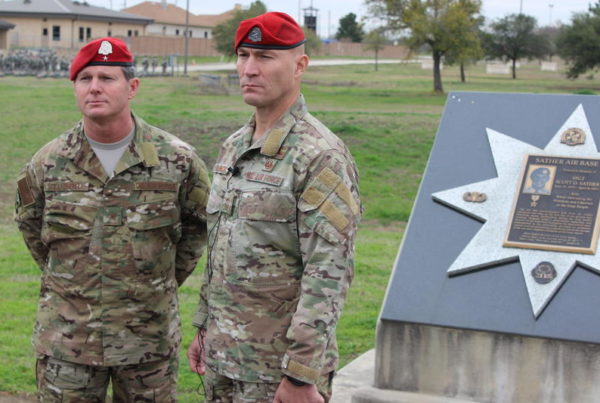When American males turn 18, they are required to register with the Selective Service System, essentially signing up to serve, should there be a national military crisis. Now, a federal judge in Houston has ruled that only requiring men to register is unconstitutional.
Geoffrey Corn is a professor at the South Texas College of Law Houston whose expertise includes national security law. Corn says rules about females serving in the military have been changing over the years, and this ruling is an extension of that process.
“Over the last decade, all of the restrictions on women serving in combat-coded positions have been lifted,” Corn says.
Plus, he says, the Supreme Court rulings that established an all-male draft are outdated.
Corn says a so-called men’s rights group filed the lawsuit that led to the ruling.
“This advocacy group felt that this was fundamentally unfair and inconsistent with the notion of equal protection and equal obligations as citizens, so they have been advocating for a gender-neutral draft registration requirement,” Corn says.
Corn says it’s unlikely that the U.S. will have to use a conscripted military force as it did during the War in Vietnam, for example, in the near future. He says the lawsuit is more about equal rights, and addressing the unique consequences conscripted men face if they’re called to war. But Corn says it’s unlikely that the U.S. military would even want to rely on conscripted service members.
“It’s a much harder force to manage,” Corn says. “[On the other hand,] all-volunteer forces prove to be remarkably resilient and effective, and I think military leadership values the fact that they don’t have to go to potentially unwilling members of society and require them to serve.”
But Corn says the lawsuit represents a larger discussion in the country right now about who should serve in the military. In fact, he says a national commission is already looking into how to mandatory military service may need to change to keep up with the times.
Corn says the federal government will most likely appeal the court’s ruling and seek a stay so that it won’t have to change the selective service requirements. But he says it’s likely that a higher court will ultimately uphold the ruling.
“As the judge said, you can’t argue that you don’t need women to be eligible for the draft when you, as an institution and a nation, have decided that women are fully capable and eligible to serve in every capacity in the military,” Corn says.
If that happens, he says the selective service process would have to change.
“Women, just like men, when they turn 18, are going to have to register for the draft,” Corn says. “And if there were a national emergency … they would be equally eligible to be called up into military service.”
Written by Caroline Covington.















